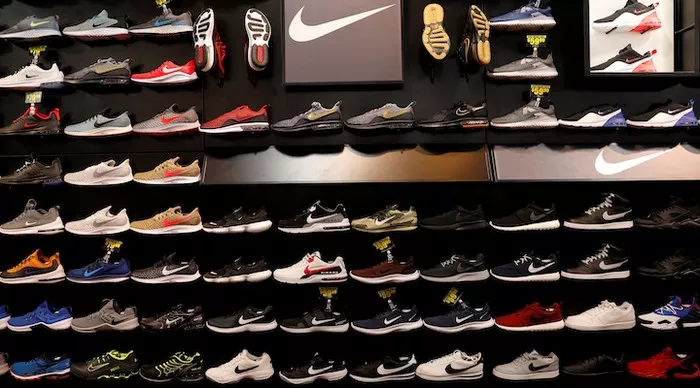Clothing and accessories retailers across the United States are responding to incoming tariff hikes by freezing hiring and delaying new product orders, as fresh duties on imports from Vietnam and China are set to take effect on Wednesday. Facing mounting uncertainty, businesses are confronting difficult choices about whether to raise prices or absorb the financial impact themselves.
For smaller brands without expansive global supply chains, the situation is particularly dire. Unlike major players such as Nike and Lululemon, which have the scale to negotiate with suppliers and shift production across multiple regions, independent labels remain heavily reliant on manufacturing in Vietnam and China. The tariff hikes have placed them in a financial squeeze that threatens their survival.
Ian Rosenberger, CEO of the New York-based backpack company Day Owl, revealed that he has already paused future production orders from Vietnam. Without a resolution or a significant reduction in Vietnamese tariffs, Rosenberger warned that the company could be forced to shut down within 30 days. With a 100-day production cycle, waiting too long to make a decision could result in missing the essential back-to-school shopping season, further endangering the business. He noted that the increased tariff would raise his product’s import duty from $5 to $22, which would push the price of the company’s high-end backpack from $155 to $212. The situation has created an atmosphere of fear among his small team of seven employees, who have begun questioning the stability of their jobs.
The broader industry is feeling the pressure too. The Footwear Distributors and Retailers of America, representing major brands including Nike, Walmart, Skechers, and Deckers, estimates that a $155 pair of running shoes made in Vietnam would need to be priced at $220 in U.S. stores to cover a 46 percent tariff. Vietnam, now the second-largest supplier of clothing and footwear to the U.S. after China, plays a critical role for companies like Nike and Adidas, offering advanced manufacturing for everything from running shoes to track suits.
Vietnam has responded by requesting a 45-day delay in the implementation of the tariffs and has offered to increase purchases of American goods. This comes after U.S. President Donald Trump and Vietnamese President To Lam agreed last week to enter discussions aimed at potentially removing the levies. In the meantime, the stock market has already begun reflecting the industry’s unease. Nike shares have fallen by 14 percent since Trump’s April 2 tariff announcement, with Adidas down 16 percent, Puma 18 percent, and VF Corporation, owner of North Face, seeing a 31 percent drop.
While large companies are better equipped to handle such shocks thanks to diverse global supply networks, smaller businesses remain vulnerable. VF Corp, for instance, stated through a spokesperson that it is “well diversified across our supply chain to manage tariffs.” That luxury is not available to independent brands like Oiselle and Wild Rye, both of which rely heavily on Vietnam and China for their manufacturing needs.
Seattle-based Oiselle, a women’s running apparel brand, has delayed orders for its Spring 2026 collection and is now operating under heightened financial pressure. CEO Arielle Knutson has tasked her 14 employees with developing two or three contingency plans for managing tariffs in addition to their regular responsibilities. With limited options and tight inventory planning windows, Knutson described the balancing act of forecasting and purchasing as “an almost impossible needle to thread.”
In Idaho, outerwear company Wild Rye is experiencing similar difficulties. The brand sources its ski jackets and mountain biking apparel from Chinese suppliers who will now face an additional 34 percent tariff. Cassie Abel, the company’s founder, has frozen all hiring and salary increases for her 11-person team. While the company intends to absorb part of the cost to avoid burdening consumers with price hikes, the financial pressure on the business is growing rapidly.
Efforts to shift production to the United States have proven unsuccessful for these companies due to quality control issues. All three — Day Owl, Oiselle, and Wild Rye — confirmed that previous attempts to manufacture domestically did not meet their standards, making U.S. production an impractical solution to their current dilemma.
As the new tariffs take effect, smaller fashion and accessory brands across the U.S. are navigating a precarious landscape marked by financial strain, disrupted operations, and an uncertain future. For many, the coming weeks could be critical in determining whether they adapt and survive or succumb to the mounting costs.
Related Topics
- Most Men Feel More Confident in a Suit—But Few Understand Formal Dress Codes, Survey Reveals
- Floral Shirts Bloom as Summer Fashion Stars at Myntra Fashion Carnival
- Ireland to Host First-Ever Nationwide Fashion Week in October 2025

